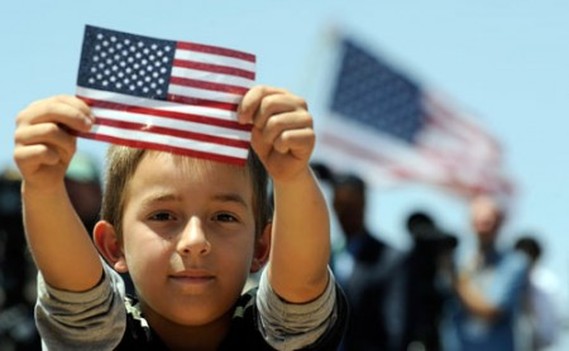The young migrants and asylum seekers swim across the Rio Grande and clamber into the dense brush of Texas, across the US and Mexico border. Many are teens who left Central America on their own. Others were sent along by parents from refugee camps in Mexico. They are as young as 10. Under US law they would normally be allowed to live with relatives while their cases wind through immigration courts.
Instead the Trump administration is quickly expelling them under an emergency declaration citing the coronavirus pandemic, with 600 minors expelled in April alone. The expulsions are the latest administration measure aimed at preventing the entry of migrant children, following other programs such as the since-rescinded “zero-tolerance” policy that resulted in thousands of family separations. Border agencies say they have to restrict asylum claims and border crossings during the pandemic to prevent the virus’s spread. Migrants’ advocates call that a pretext to dispense with federal protections for children.
In interviews with the Associated Press, two recently expelled teens said border agents told them they wouldn’t be allowed to request asylum. They were placed in cells, fingerprinted and given a medical exam. Then, after four days, they were flown back to their home country of Guatemala. The AP is withholding the teens’ last names to protect their privacy.
A 10-year-old boy and his mother, whom the AP is not identifying because she fears retribution for speaking publicly, spent months at a squalid camp in Matamoros, Mexico, across from Brownsville, Texas, waiting for their immigration court dates under the Trump administration program known as “Remain in Mexico”. When she lost an initial decision, she decided he would be better off temporarily with her brother in the United States. She watched him swim across the Rio Grande.
The woman expected he would be treated the same as before, when such children were picked up by the US border patrol and taken to Department of Health and Human Services facilities for eventual placement with a sponsor, usually a relative. But the mother heard nothing until six days later, when her family received a call from a shelter in Honduras.
“They had thrown him out to Honduras,” she said. “We didn’t know anything.”
The boy now lives with a family member in the capital, Tegucigalpa. Another relative has agreed to take him back to the family’s rural village, if the mother returns to care for him. But she fears her former partner, who abused and threatened both of them.
“He doesn’t want to eat. All he does is cry,” the woman said. “I never imagined they would send him back there.” Their case was first reported by CBS News.
Under a 2008 anti-trafficking law and a federal court settlement known as the Flores agreement, children from countries other than Canada and Mexico must have access to legal counsel and cannot be immediately deported. They are also supposed to be released to family in the US or otherwise held in the least restrictive setting possible. The rules are intended to prevent children from being mistreated or falling into the hands of criminals.








